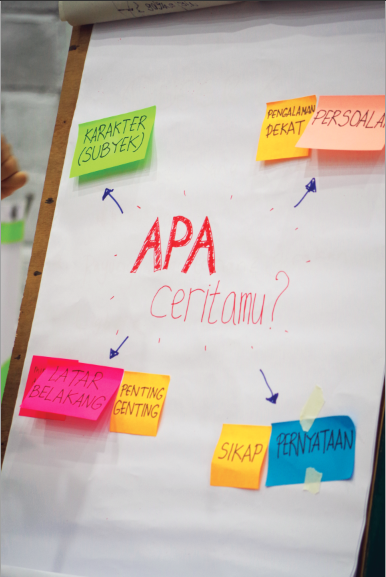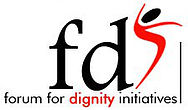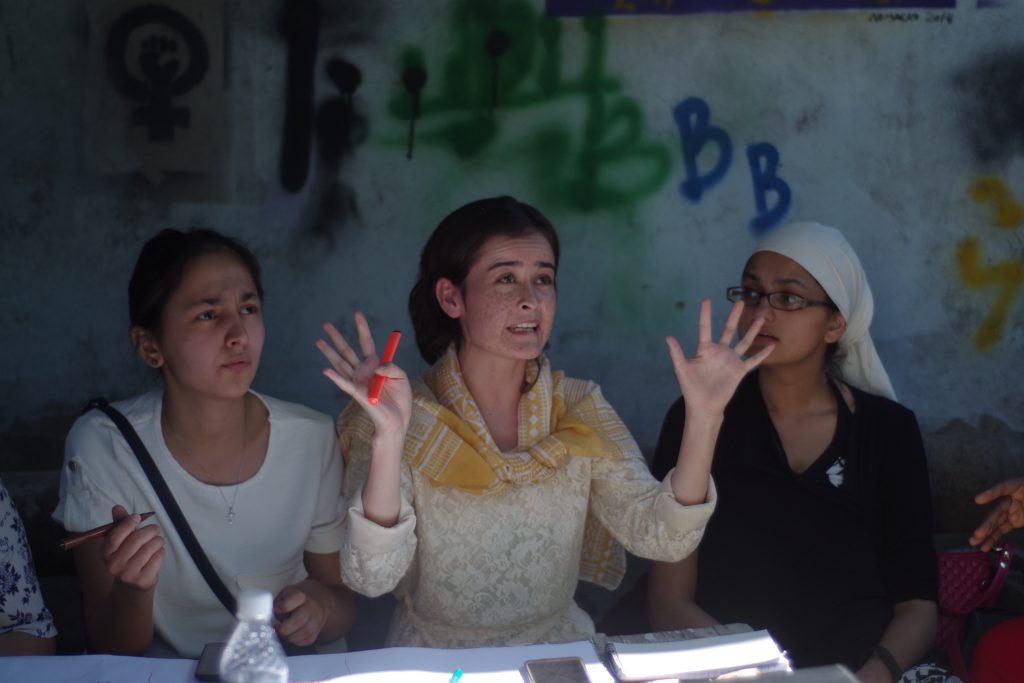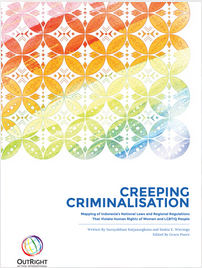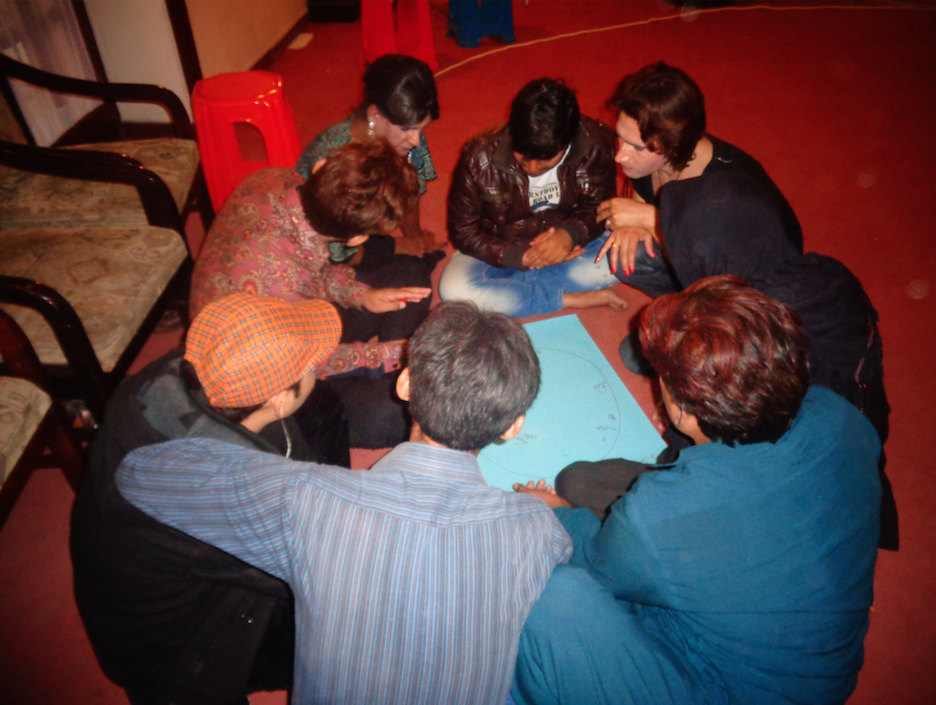To mark international Human Rights Day, and the close of the 16 Days Of Activism 2020, we share this urgent call to action, for the protection and support of women human rights defenders (WHRDs) in the Middle East and North Africa.
Read the statement below, and download the statement in English here, and in Arabic here. To learn more about about WHRDs under threat across the region in Egypt, Iran, Iraq, Turkey, and Saudi Arabia, watch the #SupportWHRDs playlist here.
Together We Must Protect and Support WHRDs in Middle East and North Africa
URGENT CALL TO ACTION
Women human rights defenders (WHRDs) are crucial actors in the struggle to ensure human rights are enjoyed by all, moving their societies toward more inclusive and equal ones. In the Middle East and North African (MENA) region, where most countries lag behind in gender equality, WHRDs play an even more critical role, but also face greater challenges. Over the last few years we have witnessed a rise in violence against WHRDs in the MENA region. 2020 was an especially violent year, where in some instances, WHRDs received death threats and tragically, in several cases, such as in Iraq and Libya, WHRDs were killed.
The spike in violence[1] directed at WHRDs in MENA, and the increasing criminalization of rights advocacy, are appalling and unacceptable. WHRDs in the region are the target of government-sponsored smear campaigns, regularly threatened, arrested, in some cases abducted and forcibly disappeared, subjected to torture and other ill treatment in detention, face serious violation of their due process rights, and some are facing lengthy pretrial detention[2] and prison sentences[3]. They are experiencing the violations of their rights, simply because they dared to hold their governments accountable and advocate so that the most vulnerable and marginalized groups can enjoy equality, inclusion and justice.
WHRDs in conflict zones such as Libya, Syria, Yemen and Iraq, are at risk of persecution and attacks by non-State actors for exposing crimes and abuses committed by warring militias and armed groups. Kurdish WHRDs in Turkey are subject to arbitrary detention and prosecution on terrorism charges. Egypt, Iran and Saudi Arabia too stand out because of their consistent persecution and targeting of WHRDs. Also, WHRDs in Western Sahara are subject to threats and targeting from Moroccan authorities in addition to judicial harassment.
Governments are carrying out these attacks in violation of their international obligations, but in some contexts the attacks against rights defenders are also in direct violation of national laws that guarantee due process. In a thinly veiled attempt to give legitimacy to their actions, some States[4] are using existing laws to persecute rights defenders while others have adopted laws that specifically criminalize human rights advocacy. Some States, have creatively resorted to labeling rights advocacy as actions undermining national security or even worse support for terrorism.
However, the backlash of States against WHRDs, has done little to ensure their security in a region where we are witness to increasingly deafening public outcries and demands for social justice, including
in the form of mass protests in which citizens are objecting to decades of repressive policies, insecurity, mismanagement and political and economic corruption. The systematic attack on human rights defenders and the criminalization of rights advocacy follow years of repressive policies in the MENA region targeting civil society and civic space, including through restrictions on and closure of NGOs and the press and through attacks on academic freedoms.
The closure of civic space and increased rights violations are taking place in a context of emboldened fascisms, fundamentalisms, nationalisms, and authoritarianisms globally. Part of this picture is the pushback on the international human rights mechanisms and guarantees, as well as bodies charged with holding States accountable on rights violations. For years now, State and non-State actors have advocated an anti-rights agenda, aimed at weakening rights language and guarantees, as well as dismantling and defunding UN human rights systems. These anti-rights actors have worked steadfastly to weaken the ability of human rights systems and in particular the UN special procedures processes, to demand State accountability on violation of human rights. In the context of the MENA region, we see State and non-State anti-rights actors engaging in international human rights spaces using tactics of infiltration, surveillance, co-optation of rights language, and reprisals against WHRDs, all intended to consolidate national efforts to shut down civic space, and in addition, create a parallel human rights framework that denies rights and undermines State accountability.
Alarmingly, the deterioration of rights in MENA has happened with little condemnation from the international community, with many governments choosing to prioritize other policy objectives, such as security of their corporate, economic or military interests in the region and profits from arms sales. Some have turned a blind eye to rights violations in the hopes that they can stop the flow of migration to Europe by refugees who are fleeing the very failed regional policies that have contributed to war, instability, economic crisis and repression. More egregious has been the embrace of authoritarian policies and regimes in the region, by the US, UK and some European States.
Recommendations:
- We strongly urge governments in the MENA region to heed the call of their public and adopt socially just policies, centered on human rights. State security rests first and foremost on the ability and willingness of States to meet the needs of citizens. In doing so, States can and should rely on and be accountable to WHRDs and their organizations, who are well positioned to reflect the concerns and demands of communities.
- We remind MENA States too of their obligation to guarantee and protect the rights of women to participate in civic life, including their freedom of association, expression and assembly, contained in the Universal Declaration of Human Rights as well as asserted in various international treaties, foremost among them the International Covenant on Civil and Political Rights (ICCPR), the International Covenant on Economic, Social and Cultural Rights (ICESCR), the Convention on the Elimination of all forms of Discrimination against Women (CEDAW) and regional treaties including the Protocol to the African Charter on Human and People’s Rights on the Rights of Women in Africa (Maputo Protocol). These rights, among others, are reiterated in the Declaration on the Rights and Responsibility of Individuals, Groups and Organs of Society to Promote and Protect Universally Recognized Human Rights and Fundamental Freedoms, also known as the Declaration on Human Rights Defenders, adopted by the General Assembly on 8 March 1999. The Declaration applies to everyone acting to promote and protect human rights as long as they accept and apply the principles of universality of rights and non-violence. Further, the Declaration on Women Human Rights Defenders, obliges States to recognize the risks, discrimination and violence women human rights defenders face, and put into place concrete gender-sensitive policies and programs for their protection.
- We call on governments around the world to rethink their policies and approach to the region. Policies toward the MENA region need to prioritize human security and be centered on human rights principles that promote and uphold social justice.
- All UN Member States, given their human rights commitments, need to uphold and strengthen the roles of UN rights mechanisms, including ensuring sufficient funding for UN Special Procedures, to carry out critical work.
- We urge donors to prioritize and fund the work of WHRDs, establish and support mechanisms that help to ensure the safety of those under the greatest threats, including facilitation of visa requests for quick evacuation in cases where lives are threatened. We further encourage donors to support psychosocial wellness programs as well as integrated security and self-care training in an effort to help WHRDs who are suffering as a result of pressures at multiple levels.
[1] This includes a rise in assassination threats and killing of WHRDs in Iraq, Libya, increased detentions in Egypt, Iran, Saudi Arbia and Turkey and increased administrative detentions in Palestine as well as violent defamation and smearing campaigns in Morocco, Lebanon and Yemen.
[2] See for example: https://www.ishr.ch/news/hrc44-egypt-release-solafa-magdy-esraa-abdelfattah-sanaa-seif-and-all-defenders-now
[3] See for example: https://www.hrw.org/news/2020/02/19/iran-environmentalists-unjust-sentences-upheld
[4] Some examples of countries that have used existing laws or have adopted new laws to restrict civic engagement and target or persecute rights defenders include: Egypt, Iran, Jordan, Saudi Arabia, Tunisia and Turkey. Additionally, mass protests in countries such as Algeria, Lebanon, Iraq and Sudan, were used as a pretext for judicial harassment and targeting of rights defenders.


